Click here to return to conference page.
 |
1. Dr. Susan Andrews (Mount Allison University)
Susan Andrews is an Assistant Professor of East Asian religions at Mount Allison University and Executive Editor of Studies in Chinese Religions. Her research focuses on the roles of narrative in religion. She has published a number of scholarly articles exploring the ways that the telling and retelling of stories about the past served the needs of religious communities in medieval China and Japan. She also co-edited The Rules of Engagement with Jinhua Chen. Andrews’ conference presentation forms part of her larger study of BCA Dharma School curriculum. Her participation in this conference forwards its larger goal of promoting the scholarship of junior scholars and providing them with opportunities to network with academics from across Canada and the world. |
|
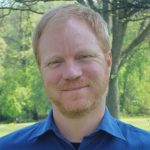 |
2. Dr. Ben Brose (Asian Languages and Cultures, University of Michigan)
Associate Professor of Chinese Buddhism, Benjamin Brose is author of the recently-published Patrons and Patriarchs: Regional Rulers and Chan Monks during the Five Dynasties and Ten Kingdoms, as well as a number of articles exploring the ways that social, cultural, and political change shape and are shaped by the development of religious doctrines and practices. His second book project–of which his conference presentation forms part–examines recent representations of the seventh-century Buddhist cleric, pilgrim, and scholar Xuanzang (600/602–664) in nineteenth and twentieth century mainland China, Taiwan, Japan, and India. A model of the type of scholarship this conference aims to promote, Brose’s work crosses geographic and temporal borders. It illuminates oftentimes overlooked connections between seemingly disparate times and places and highlights the ways that religious practice and belief shape and are shaped by their larger contexts. |
|
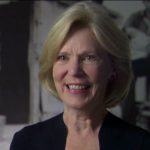 |
3. Dr. Clair Brown (Center for Work, Technology, and Society at the University of California, Berkeley)
Dr. Clair Brown is Professor of Economics and Director of the Center for Work, Technology, and Society at the University of California, Berkeley. Prof Brown is a past Director of the Institute of Industrial Relations (IRLE) at UCB. Clair has published research on many aspects of how economies function, including high-tech industries, development engineering, the standard of living, wage determination, poverty, and unemployment. Her books include American Standards of Living, 1919-1988, and Chips and Change: How crisis reshapes the semiconductor industry. Clair’s contributions to the field of Labor Economics were recognized by the Labor and Employment Relations Association, who awarded her their Lifetime Achievement Award in 2010. Clair’s economic approach and life as an economist is published in Eminent Economists II – Their Life and Work Philosophies (Cambridge University Press, 2013). In 2013 at UC Berkeley, Clair helped create a new program called Development Engineering, for graduate students in engineering and economics to develop their multidisciplinary skills for designing, building, and evaluating new technologies to help developing regions. In 2011, Clair began a field, Buddhist Economics, at UC Berkeley. Buddhist economics integrates global sustainability and shared prosperity to provide a holistic model of economic behavior and well-being. Her book Buddhist Economics: An enlightened approach to the dismal science will be published by Bloomsbury Press in January 2017. One aspect of this work is the development of a measure of economic performance based on the quality of life, and to estimate it for state of California. This index integrates measurements of inequality and environmental degradation as well as value of nonmarket activities and consumption to provide an inclusive measurement of sustainable economic performance to guide policy. |
|
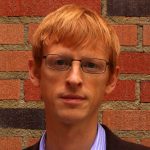 |
4. Dr. Caleb Carter (Program in East Asian Studies, Johns Hopkins University)
Caleb Carter specializes in Japanese religions, focusing in particular on the mountain-based Shugendo tradition. His work is solidly interdisciplinary, drawing on religious and folklore studies as well as political, social, and intellectual history. A recent graduate of UCLA, Dr. Carter is currently a Post-Doctoral Fellow at Johns Hopkins. His conference paper forms part of his current book project exploring the historical development of Buddhism in the mountains of premodern Japan through an investigation of one region. His participation forwards the conference aim of foregrounding new research on Buddhism and Economics being conducted by graduate students and emerging scholars. |
|
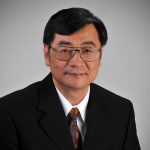 |
5. Dr. Otto H. Chang (Indiana Univ. & Purdue Univ.)
Paul E. Shaffer Professor of Accounting, Dr. Otto Chang is an accounting and business educator who has published a number of works on Buddhism and Economics. These include “Humanistic Buddhism and Business Ethics” (2003), “Buddhism and Innovative Organizational Culture” (2005), “Economic Sustainability: A Buddhist Perspective” (2006), and “Accounting Ethics Education: A Comparison with Buddhist Ethics Education Framework” (2012). His solidly interdisciplinary approach is a model for the type of work this conference seeks to facilitate. |
|
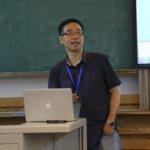 |
6. Dr. Jinhua Chen (UBC)
PI of this project, Jinhua Chen is a professor of East Asian Buddhism at the University of British Columbia, where he has served since 2001 as the founding director of the UBC Buddhist Studies Forum. He is currently the director of the newly-awarded SSHRC Partnership Project, From the Ground Up: East Asian Religions through Multi-media Sources and Interdisciplinary Perspectives (2016-2023). Dr. Chen has addressed different aspects of the interaction between Buddhism and economics in medieval China in many publications. In addition to his leadership with this project, Dr. Chen will contribute a case study of a unique monastic proto-banking institution in sixth century Southern China to this conference. |
|
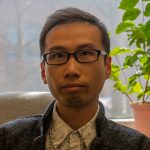 |
7. Dr. Kin Cheung (Moravian College)
Assistant Professor of Asian Religions at Moravian College, Dr. Kin Cheung is an emerging scholar in the field of East Asian religions. His recent publications on Contemporary Buddhism consider Buddhism and health and Buddhist involvement in economics and capitalism. They include “Historicizing Scientific Research on Meditation” (2015) and “Money Raising in Chinese Buddhism: Mainland Chinese Mountain Initial Public Offering in the Stock Market and Taiwanese Donation-Based Economics” (2014). Cheung’s research interests align closely with the focus of this conference and, as a junior professor, his participation forwards one of its principle goals of facilitating networking and career development. |
|
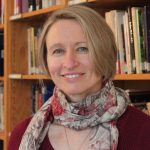 |
8. Dr. Barbra Clayton (Mount Allison University)
In 2016, the SSHRC awarded Dr. Barbra Clayton an Insight Development Grant for her current research project: “The Ethics of Gross National Happiness: Buddhism and Bhutan’s Approach to Sustainable Development.” A specialist in Buddhism and Ethics, particularly Environment Ethics, Dr. Clayton’s presentation forms part of her ongoing study on the roles of economics in contemporary Buddhism. Her participation in this academic meeting will advance our understanding of Buddhist economic life and may help to promote further cross-Canada and international collaborations in this field. |
|
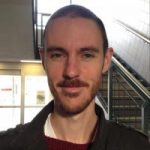 |
9. Christopher Emory-Moore (University of Waterloo)
Christopher Emory-Moore is completing his Ph.D. in the joint Wilfrid Laurier University-University of Waterloo Religious Studies program. He studies Buddhism’s global modernization, focusing on contemporary forms of Tibetan practice conducted in North America. Emory-Moore’s cutting-edge ethnographic research on the New Kadampa Tradition (NKT) has been recognized with a number of awards, including a SSHRC Joseph-Armand Bombardier Canada Graduate Scholarship Master’s Award. His presentation promises to illuminate larger forces–especially economic ones–at play in the transformation of monastic life today. Sharing his work at the “Buddhism and Business, Market and Merit” conference will allow Emory-Moore to receive feedback from top scholars and peers in the field. It will also offer him an opportunity to make connections with academics based in Canada and around the world. |
|
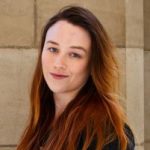 |
10. Hannah Gould (The University of Melbourne)
Hannah is currently an Australian Post-Graduate Award funded PhD student at The University of Melbourne. She is a cultural anthropologist and museum curator working in the areas of religion, death, and material culture, and is interested in how deities and the dead are materialised in everyday life, with a regional focus of North-East Asia. Her current research investigates changes to the spiritual economy of domestic Buddhist altars (仏壇 butsudan) and associated rituals in contemporary Japan. |
|
| 11. Dr. Phyllis Granoff (Yale University)
Yale University Professor of World Religions Phyllis Granoff is a specialist in Indic religions. She also serves as the editor of the Journal of Indian Philosophy. Her many publications include The Victorious Ones: Jain Images of Perfection, an edited volume that accompanied the exhibition on Jain art that she curated at the Rubin Museum of Art, Images in Asian Religions, and Pilgrims, Patrons and Place co-edited with Koichi Shinohara. A celebrated scholar whose work examines connections across religious lines, Granoff’s participation will offer an excellent networking resource for junior scholars and graduate students. |
||
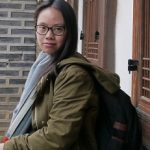 |
12. Yongshan He (University of Toronto)
Yongshan He is working on her PhD degree in the East Asian Studies Department at the University of Toronto. She studies Chinese religions and religious material culture in early and medieval periods, and is interested in the active and agentive roles artefacts play in society. |
|
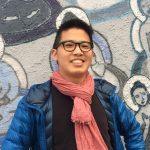 |
13. Philip Wei-li Hsu (University of California, Los Angeles)
Philip Hsu is a doctoral candidate in the Department of Asian Languages and Cultures at the University of California, Los Angeles. His research–including his conference paper–focuses on Chinese monasticism between the Song (960-1279) and Qing (1644-1912) periods. On a number of occasions he has presented on this topic, most recently giving a talk entitled “Views on Money in Pre-modern Chinese Buddhist Monastic Codes” at “The 6th International Sheng Yen Buddhist Conference” held at National Taiwan University, Taipei, Taiwan (2016). His participation in the “Buddhism and Business, Market and Merit” conference forwards our goal of foregrounding the work of graduate students and junior faculty in the field of Buddhism and Economics and providing them with opportunities to receive feedback on their work and network with peers and professors. |
|
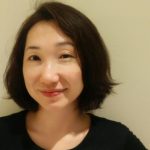 |
14. Dr. Wei-shan Huang (Chinese University of Hong Kong)
Dr. Weishan Huang is Assistant Professor in the Chinese University of Hong Kong’s Department of Cultural and Religious Studies. A scholar of contemporary East Asian Buddhism, Dr. Huang has received a number of awards for her work on Buddhist gentrification, religion and globalization, and transregional religious networks including grants from the Chiang Ching-Kuo Foundation. Among her recent publications is a pair of co-edited volumes–Gender and Religion in Contemporary China and Ecologies Of Faith In New York City–and articles such as “WeChat Together about Buddha: The Construction of Sacred Space and Religious Community in Shanghai through Social Media” (2016) and “The Blissful Enterprise: Buddhist Cultural Turns In the Workplace In Contemporary Shanghai” (2015). An emerging scholar, Dr. Huang’s research aligns closely with the conference topic and her participation will enable junior and senior scholars alike to explore possibilities for further international and interdisciplinary collaboration. |
|
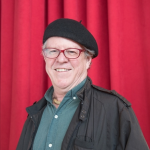 |
15. Dr. Jamie Hubbard (Religion Department, Smith College)
Jamie Hubbard is the Yehan Numata Professor in Buddhist Studies and Professor of Religion at Smith College where he also holds the Jill Ker Conway Chair in Religion and East Asian Studies. Hubbard is the author of books, articles and films on Buddhism in East Asia, including Pruning the Bodhi Tree (with Paul Swanson), Absolute Delusion, Perfect Buddhahood and the film The Yamaguchi Story: Buddhism and the Family in Japan. He also has extensive interests in the use of technology in Buddhist studies and has worked on numerous projects in the area of archiving Buddhist texts and digital publication, and more recently in the field of neuroscience and emerging technologies of awareness. His groundbreaking Absolute Delusion, Perfect Buddhahood brought to light Buddhism’s profound influence on the economic world of early medieval China. He returns to this topic in his conference presentation on the “Sanjie Movement” that he introduced to scholars of Asia more than a decade ago. |
|
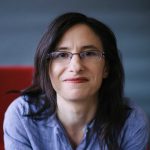 |
16. Dr. Leah Kalmanson (Drake University, Dept of Philosophy and Religion)
Dr. Leah Kalmanson is Associate Professor in Drake University’s Department of Philosophy and Religion. She is a specialist in Asian and Comparative Philosophy and Continental Philosophy. Her many publications appear in journals such as Philosophy East and West, the Journal of Buddhist Philosophy, and the Journal of World Philosophies. She is the editor or co-editor of five volumes including Buddhist Responses to Globalization (2014). Her background contributes to the interdisciplinarity of the conference bringing a unique perspective to the study of the Sanjie Movement and Buddhism’s relationships with economics more generally. |
|
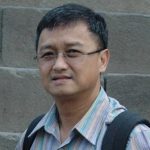 |
17. Dr. Hudaya Kandahjaya (BDK America (aka Numata Center, Berkeley), Moraga, California)
Hudaya Kandahjaya has worked at the BDK America (earlier known as the Numata Center for Buddhist Translation and Research), in Berkeley (now in Moraga), California, USA, since 1998, assisting this institution undertaking its main project: translating Chinese Buddhist canon into English and publishing the translation in the series called the BDK English Tripitaka. Hudaya graduated from the Graduate Theological Union, Berkeley, California, in 2004 with a PhD in Buddhist Studies specializing in Indonesian Buddhism. He has separately issued a number of publications in the form of book, chapter, article, or encyclopedia entries related to his ongoing study of Indonesian Buddhism. In addition to scholarly and literary study, he has engaged in practical aspect of Buddhism. He initiated and eventually established a private school on his hometown Buddhist temple ground. The school was designed to cater students of all background and under-privileged ones were given a priority. The work has ever since geared his interests in Buddhism and Education further toward theoretical as well as practical understanding of Engaged Buddhism. |
|
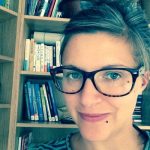 |
18. Paulina Kolata (The University of Manchester, School of Arts, Languages and Cultures)
Paulina Kolata is doctoral student in the University of Manchester’s East Asian Studies Department. An emerging scholar of Japanese religions, Ms. Kolata is an anthropologist of Buddhism whose research focuses on religion and tourism, Buddhist modernism, and religion and authority in Japan. She has presented on these topics on a number of occasions, most recently giving a paper titled “The socio-religious geographies of contemporary Japanese Temple Buddhism in an ethnographic perspective: researcher positionality and access to knowledge” at the Anthropology of Japan in Japan (AJJ) Fall Meeting at Tsukuba University, Japan (2016). Ms. Kolata’s background in ethnography will contribute to the interdisciplinarity of the “Buddhism and Business, Market and Merit” conference. Her participation accords with the goal of promoting the scholarship of graduate students and junior scholars in the field of Buddhism and Economics and providing these individuals with opportunities to form connections and collaborations with peers and professors from around the globe. |
|
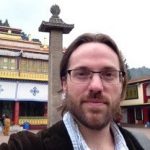 |
19. Adam C. Krug (UC Santa Barbara)
Adam Krug is a doctoral student in the Department of Religious Studies at University of California, Santa Barbara. His research concerns Buddhism and South Asian Religions. Mr. Krug recently published “Pakpa’s Verseson Governance in Advice to Prince Jibik Temür:A Jewel Rosary” (2016) in Cahiers d’Extrême Asie and is currently completing a dissertation on the development of Vajrayana (Tantric) Buddhism in India. As a student presenter, Dr. Krug’s participation in this conference forwards our aims of showcasing the work of emerging scholars working in the field of Buddhism and Economics. |
|
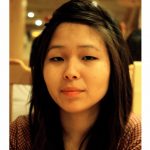 |
20. Elzyata Kuberlinova (International Max Planck Research School for the Anthropology, Archaeology and History of Eurasia (ANARCHIE))
Elyzyata Kuberlinova’s doctoral research on the transformation of nineteenth-century Buddhist economic practices represents a genuinely original contribution to the fields of Religious Studies and Economics. While the Buddhist traditions of this region generally have received little scholarly attention, the economic history of Buddhism is only beginning to be told. Ms. Kuberlinova’s presentation will enhance participants’ understandings of these topics and forwards key aims of the conference: highlighting cutting-edge research being conducted by emerging scholars in the field and offering these individuals opportunities to network with peers and senior scholars from around the globe. |
|
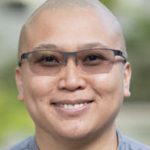 |
21. Dr. Rongdao Lai (University of Southern California)
Rongdao Lai is assistant professor of Religion at the University of Southern California. She received her PhD in East Asian Buddhism from McGill University in 2014. She specializes in modern Chinese Religions, focusing especially on identity production and the changing landscape in modern Chinese Buddhism. She recently co-edited the Eastern Buddhist feature on Socially Engaged Buddhism (2014) with Jessica Main. She is in the course of completing a book manuscript, based on her doctoral dissertation, on educational reform and citizenship discourse in modern Chinese Buddhism. She is also working on her new project on transnational lineage networks in twentieth-century Chinese Buddhism, which is a study of the global forms of circulation and identity formation of the Tiantai lineage network between the 1920s and 1990s. Lai is currently a postdoctoral fellow at the Asia Research Institute, National University of Singapore (2016-17). |
|
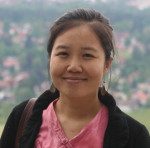 |
22. Dr. Cuilan Liu (Emmanuel College of Victoria University in the University of Toronto)
A recent graduate of Harvard University, Cuilan Liu is Assistant Professor of Buddhist Studies in Emmanuel College of Victoria University at the University of Toronto. A historian whose work examines Buddhist ethics, history, music and thought in India, China, and Tibet, Dr. Liu is also a documentary film maker who directed, recorded, and edited the film Young Jigme shot in a Buddhist monastery in Northeastern Tibet. Her current book project explores how Buddhist law and traditional Chinese law intersected in middle period China. Like the scholarship this conference aims to promote, Cuilan Liu’s work traverses geographic boundaries. A Canadian-based emerging scholar, her participation forms part of our attempt to foreground work being done by junior scholars and to give these individuals opportunities to network within and outside of their field. |
|
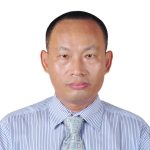 |
23. Dr. Xiqi Lu (Wuhan University )
Xiqi Lu is a Professor at Wuhan University. He mainly engages in the medieval history in China and historical geography in the Southern China. His publications include The Spatial Structure of Chinese History, Study on the Tomb Contracts in Traditional China, The People, Settlement and Local Society: A Preliminary Study on the History and Geography in the Medieval China, and Inside and Outside of the Walled City: the Form and Spatial Structure of the Walled Cities in Han River Valley from Han Dynasty to Qin Dynasty. He has recently begun work on the history in the coastal areas of the southern China during the medieval period. |
|
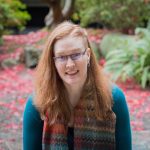 |
24. Dr. Jessica Main (UBC)
Jessica L. Main is Assistant Professor at The University of British Columbia, holding a joint appointment in the Department of Asian Studies and Institute of Asian Research. Since Fall of 2009, she has served as The Robert H. N. Ho Family Foundation Chair in Buddhism and Contemporary Society and Director of the RHNHFF Program in Buddhism and Contemporary Society at UBC. She wrote her PhD dissertation, “Only Shinran Will Not Betray Us” (McGill 2012), on the topic of descent-based discrimination, human rights, and Japanese True Pure Land, Jōdo Shinshū or Shin Buddhism, looking especially at the problem of caste-based discrimination in Shin Buddhism against the burakumin. She is currently working on a manuscript on this topic entitled, No Hatred in the Pure Land: Burakumin Activism and the Shin Buddhist Response in Interwar Japan. Her broader research interests include modern Buddhist ethics, social action, and institutional life in East and Southeast Asia, particularly in the areas of sectarian social policy, chaplaincy, youth and physical culture, public health, and professional or role-based ethics. |
|
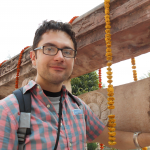 |
25. Dr. Matthew Milligan (Georgia College & State University)
Dr. Milligan investigates the world of ancient South Asian religion. Matthew D. Milligan received his B.A. from Albion College in 2006, his M.A. and PhD in Asian Cultures and Languages from the University of Texas at Austin in 2010 and 2016 respectively. He studies Indian Buddhist material culture with a focus on epigraphy, art, and their descriptions in Pali and Sanskrit literature. His most recent project is on institutional patronage and donor networks in the shared Indian religious landscape of the late centuries BCE. Aside from rigorous academic study, Matthew enjoys basketball, bodybuilding, and snow skiing. His research centers on the interplay between religion and economic patronage networks, particularly as it relates to institutional success during a religion’s formative years. Recently, he is interested in bodybuilding, asceticism, and the definition of religion. |
|
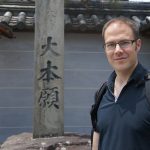 |
26. Dr. Matthew Mitchell (Graduated from Duke U in May 2016)
Matthew Mitchell is a recent graduate of Duke University’s Religion Department where he completed a PhD in Asian Religions. His research focuses on modern Japanese religions and his dissertation–“Beyond the Convent Walls: The Local and Japan-wide Activities of Daihongan’s Nuns in the Early Modern Period (c. 1550–1868)”–focuses on a group of Buddhist nuns of the Daihongan sub-temple of Zenkoji in Japan’s early modern period. Recently, Dr. Mitchell organized the following panel at the 2015 Annual Meeting of the American Academy of Religion: “Selling Spirituality, Buying Buddhism, Commercializing Kami, Marketing Merit, Delivering Doctrine: Economic Aspects of Religious Traditions in Japan.” Dr. Mitchell’s work on intersections between Buddhism and Economics in Japan has much to offer this conference and his presentation forwards a key aim of the meeting: promoting the work of junior scholars in this emerging field. |
|
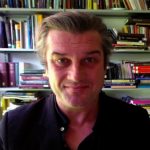 |
27. Dr. Nicolas Morrissey (Lamar Dodd School of Art, University of Georgia)
Dr. Nicolas Morrissey is Assistant Professor of Asian Art and Religion in the University of Georgia’s Lamar Dodd School of Art. A specialist in the archaeology, epigraphy, architecture, and Art History of India, his recent publications include: “Silence, Secrecy and Enigmatic Meaning in Esoteric Buddhist Art” (2016) and “A Note on Some Neglected Votive Records from Pitalkhora in the Western Deccan” (2014). Dr. Morrissey’s background in the study of Art History will have much to offer discussions of the interactions between Buddhism and Economics past and present. A scholar of South, Southeast, and Central Asia, Dr. Morrissey’s work crosses geographic boundaries and is a model of the type of research the conference seeks to promote. |
|
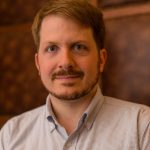 |
28. Cameron Penwell (The University of Chicago, Department of History)
Cameron Penwell is a doctoral candidate in the University of Chicago’s Department of History. He is a scholar of Modern Japanese History currently completing his dissertation: “The Emergence of Modern Buddhist Social Work in Twentieth-Century Japan.” Mr. Penwell’s participation in the “Buddhism and Business, Market and Merit” conference aligns with the aims of highlighting important research being conducted by graduate students and junior scholars in the field of Buddhism and Economics and giving these individuals opportunities to form connections and collaborations with peers and professors across Canada and around the globe. |
|
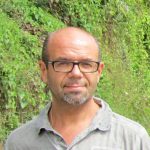 |
29. Dr. Fabio Rambelli (University of California, Santa Barbara)
Professor of Religious Studies and East Asian Languages, Fabio Rambelli is an expert in Japanese religions and intellectual history. Three of his many recent publications include Buddhist Materiality: A Cultural History of Objects in Japanese Buddhism (2007), Vegetal Buddhas Vegetal Buddhas: Ideological Effects of Japanese Buddhist Doctrines on the Salvation of Inanimate Beings (2001), and the edited volume Buddhism and Iconoclasm in East Asia (2014). A senior scholar in the field of Buddhist Studies, Rambelli’s work attends to relationships between religion, culture, society, politics, and the material objects that populate people’s lives. While his research will contribute much to discussions of the ways economic life has long informed Buddhist practice, his participation will also offer junior scholars networking opportunities. |
|
 |
30. Dr. Julie Remoiville (Groupe Sociétés Religions Laïcités GSRL (EPHE/CNRS), Paris)
Julie Remoiville is a Postdoctoral Researcher at Groupe Sociétés Religions Laïcités GSRL (EPHE/CNRS). Her research–currently funded by the Chiang-Ching-Kuo Foundation–examines the religious revival in contemporary urban China. Dr. Remoiville recently reviewed lectures “Chinese Religiosities: Afflictions of Modernity and State Formation” (2009) and “Women, Religion, and Space in China. Islamic Mosques & Daoist Temples, Catholic Convents &Chinese Virgins.” She is the author of « Le renouveau religieux en Chine contemporaine : Le rôle social des lieux de culte en contexte urbain », Études chinoises, 2014, vol. XXXIII-1, p. 133-146. Dr. Remoiville’s research of great relevance to this conference. Her participation forwards the goal of highlighting cutting-edge work being conducted by emerging scholars in the area of Buddhism and Economics. Based at EPHE/CNRS, Dr. Remoiville’s presence will allow for the creation of connections between Canadian scholars and our counterparts around the globe. Is Viagra the best thing out there? Found here http://imph.org/viagra-sildenafil/ the precautions and instructions, but would like to get a real experience. I know they have been on market over two decades, but which one is better? Viagra, levitra or cialis? Or maybe someone even been trying something else and noting better results? |
|
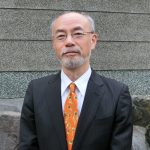 |
31. Dr. Shizuka Sasaki (Hanazono University)
Dr. Shizuka Sasaki is a Professor of Indian Buddhism at Hanazono University. His research focuses on Indian Buddhist monasticisms, history of Mahayana Buddhism, Buddhist philosophy, and the relationship between Buddhism and science. A recognized authority in these areas, Sasaki’s publications include a celebrated series of eight articles “Buddhist Sects in the Asoka Period” (1989-1999) and ” A Study of the Origin of Mahayana Buddhism” (1997). A senior scholar of Buddhism, Sasaki’s participation will add much to discussions of intersections between Buddhism and Economics and will provide attendees with opportunities to develop international collaborations in this field. |
|
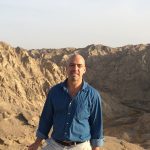 |
32. Dr. Neil Schmid (University of Groningen, Centre for the Study of Religion and Culture in Asia)
Dr. Neil Schmid is Guest Professor in the University of Vienna’s Department of Art History. A scholar of East Asia, his publications include “Digitizing a Vietnamese Buddhist Temple: The Vietnamese Nôm Preservation Foundation’s Thang Nghiêm Temple” (2014) and “Social Networks and the Reconfiguration of Cosmological Schemata in Chinese Buddhism” (2011). His research centers on Dunhuang and covers wide range of topics, e.g., the role of Buddhist literature in ritual and art, medieval economic development, esoteric Buddhism, and the ritual aesthetics of painting and architectural space of Mogao caves. For the past ten years he has been on the Board of Directors of the Vietnamese Nôm Preservation Foundation and closely involved in the their Digital Humanities project to survey and record the epigraphy, architecture, and ritual life of a Buddhist temple outside of Hanoi. From 2011 to 2015 Neil was Country Director and CEO of DKT Beijing, a social enterprise he founded in Beijing to promote the use of contraceptives and HIV prevention among students, migrants, and sex workers across China. |
|
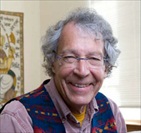 |
33. Dr. Gregory Schopen (UCLA)
Gregory Schopen’s work focuses on Indian Buddhist monastic life. By looking beyond canonical materials in favor of less commonly used sources such as Indian Buddhist stone inscriptions, his numerous scholarly works have shifted the field away from Buddhism as portrayed through its own doctrines toward a more realistic picture of the actual lives of Buddhists, lives that were (and remain) deeply intertwined with the economic sphere. In 1985 he received the MacArthur Grant for his work in the field of History of Religion. In 2015 he was also elected to the American Academy of Arts and Sciences. Buddhist Monks and Business Matters is one of three volumes dedicated to his work. A giant in the fields of Religious Studies and Asian Studies, Dr. Schopen will give one of two keynote addresses at the “Buddhism and Business, Market and Merit” conference. |
|
 |
34. Dr. Gregory Scott (University of Edinburgh)
Dr Gregory Adam Scott is a Leverhulme Early Career Fellow in the University of Edinburgh’s School of Literatures, Languages and Cultures. His research focuses on the history of religions, particularly Chinese Buddhism from the late nineteenth to the early twentieth century. His recent publications–including “The Canon as a Consumer Good” and “Absolutely Not a Business: Chinese Buddhist Scriptural Presses and Distributors, 1860s — 1930s”–explore print culture among Chinese Buddhists and the reconstruction of sacred spaces in modern China. He is also developing a digital humanities resource for use in teaching about Buddhist religious and material culture. A Canadian Postdoctoral Fellow, Dr. Scott’s participation in this conference forwards its aim of highlighting the research of emerging scholars and giving them opportunities to network with peers and mentors from around the globe. |
|
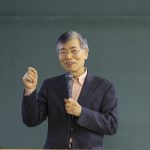 |
35. Tatsuhiko Seo (Chuo University) SEO Tatsuhiko is a professor at Chuo University. He is specialized in urban and environmental history of China around the Sui and Tang dynasties, and is well known for his work on Chang’an city in the Tang. From 2000 on, he has taught at Hokkaido University of Education (Kushiro School) and the Department of History and Anthropology at the University of Tsukuba. He has also been a visiting professor at Shaanxi Normal University and invited researcher at Harvard University. As a historian with a broad global perspective, he takes it as his lifework to clarify the historical structure of the Eurasian Continent, centered around the interrelationship between the nomadic world and the agricultural world. |
|
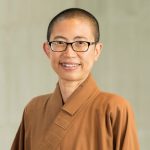 |
36. Dr. Juewei Shi (Nan Tien Institute, Wollongong, Australia)
Venerable Dr. Shi is a scholar of contemporary Buddhism. Before joining the Nan Tien Institute’s faculty, she completed a PhD in Religious Studies at the University of the West. Dr. Shi’s conference presentation forms part of her larger study of the ways that Humanistic Buddhism might shape Buddhist Economics. As both an “insider” and an “outsider” of Chinrese Buddhism, her area of expertise aligns closely with the focus of the “Buddhism and Business, Market and Merit” conference. |
|
| 37. Dr. Koichi Shinohara (Yale)
Koichi Shinohara works on Buddhism in East Asia. Before coming to Yale in 2004 he taught at McMaster University in Ontario, Canada. He has written on a variety of topics including Chinese Buddhist biographies, monastic rules, and Buddhist story literature, with a focus on the works of a famous historian and a vinaya specialist Daoxuan (596-677) and his collaborator Daoshi (dates unknown). Daoshi was the compiler of the Fayuan zhulin, an encyclopedic anthology of scriptural passages and Chinese Buddhist miracle stories. Shinohara reads Buddhist biographies as a distinct type of religious literature and through the study of these biographies, he also became interested in sacred places and the stories told about them. Daoxuan’s writings on monastic practices opened doors to unexpected readings of Chinese Buddhist miracle stories. More recently, he has been studying the evolution of early esoteric Buddhist rituals through Chinese sources. These rituals emerged in India and developed from simpler recitation of spells to elaborate rituals performed in front of images and mandalas. Though much of the early evidence for this development no longer exists in Indic languages, it has been preserved in Chinese dharani collections and translations, some of which can be dated fairly reliably. This study sheds some light on the relationship between ritual and images. |
||
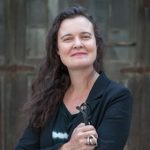 |
38. Dr. Francesca Tarocco (Venice University)
Dr. Francesca Tarocco studies the cultural history of China, Chinese Buddhism, visual culture and urban Asia. Her books include The Cultural Practices of Modern Chinese Buddhism: Attuning the Dharma (2007 and 2011) and The Re-enchantment of Modernity: Buddhism, Photography and Chinese History (2019). Her scholarly articles include “The City and the Pagoda: Buddhist Spatial Tactics in Shanghai” (2015) and “On the Market: Consumption and Material Culture in Modern Chinese Buddhism” (2011). Her conference presentation builds upon her earlier work on modern Shanghai Buddhism and visual and material culture (Tarocco 2008, 2011, 2013, 2015). Associate Professor of Religion and Philosophy at Venice University, Dr. Tarocco’s participation in the conference will offer senior and junior scholars alike the opportunity to create international collaborations. |
|
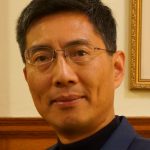 |
39. Eugene Wang (Harvard University) Eugene Y. Wang is the Abby Aldrich Rockefeller Professor of Asian Art at Harvard University. His extensive publications range from early Chinese art and archeology to modern and contemporary art and cinema. He has received Guggenheim, Getty, ACLS, and Radcliff Fellowships. His book Shaping the Lotus Sutra: Buddhist Visual Culture in Medieval China garnered the Academic Achievement Award (2006) from Japan. He is the art history editor of the Encyclopedia of Buddhism (2004). His current research explores the visual logic of Buddhist meditation, the relationship between art and mind, and artful A-Life (Artificial Life), i.e., how art conceives life and consciousness beyond biological bodies. He is in the process of founding Harvard CAM (Chinese Art Media) Lab to stage these issues. Among his current projects is the research and creation of digital virtual caves that provide structured immersive guidance to Buddhist meditation. |
|
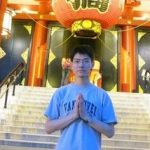 |
40. Zeng Yang (UBC)
Zeng Yang is a PhD candidate working on Medieval East Asian Buddhism in the Department of Asia Studies of UBC. Recently, he has finished a draft of his dissertation, which is a biographical study on the monk Bukong ≤ªø’ (Skt. Amoghavajra, 705-774), the well-known Esoteric patriarch of the Tang Dynasty. The chapters cover the themes such as the interaction between Esoteric Buddhist practices and the sovereignty, politics, military affairs, and the national finance. |
|
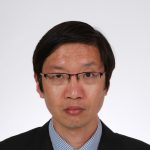 |
41. Dr. Dewei Zhang (Sun Yat-sen University)
Dewei Zhang’s research examines intersections between socioeconomic and political history and Chinese religions. He recently completed his first book, Thriving in Crisis: Buddhism and Socio-political Disruption in China, 1522-1620 (Under contract, pending minor reversions), which explores how late Ming (1573-1644) politics shaped the Buddhist renewal of this period. Dr. Zhang’s other publications include “Challenging the Reigning Emperor for Success: Hanshan Deqing (1546-1623) and Late Ming Court Politics” (2014) and “The Collapse of Beijing as a Buddhist Center” (2009). Before joining Sun Yat-sen University’s faculty, Dr. Zhang completed his PhD at the University of British Columbia and was an SSHRC Postdoctoral Fellow at McMaster University. An emerging scholar who situates Chinese religious practice and belief in its larger socioeconomic and political contexts, Dr. Zhang’s participation in this conference aligns with the aim of celebrating the scholarship of graduate students and junior scholars studying connections between Buddhism and Economics around the globe. |
|
| 42. Dr. Zong Zhang (Chinese Academy of Social Sciences)
Dr. Zhang is researcher at Institute of World Religions, Chinese Academy of Social Sciences. His field of study covers Buddhist art, Buddhist history, denominations, and culture. His publications include Di zang xin yang yan jiu (A Study of Faith in Ksitigarbha), Shuo bu jin de Guan shi yin, and hundreds of journal articles. |
||

